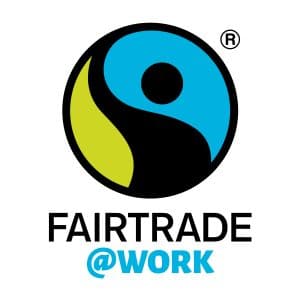news
Since ten years, the Fairtrade Access Fund, is committed to small farmers in Latin America, Africa and Asia. The fund invests in a transition towards a more sustainable agriculture and a fair income for smallholder farmers. That is why we are proud that Fairtrade Belgium came to present some Incofin colleagues with the “Fairtrade at Work” award.
Incofin: a Fairtrade @work company
The Fairtrade at Work-label is a recognition of how we work for fairer agriculture not only through our investments, but also in our daily life at the office. Whether it’s the coffee drunk there, or events organised there: Incofin always goes for the products that truly benefit the farmer or producer of origin.
You will get the full story in a few minutes in the video below:


